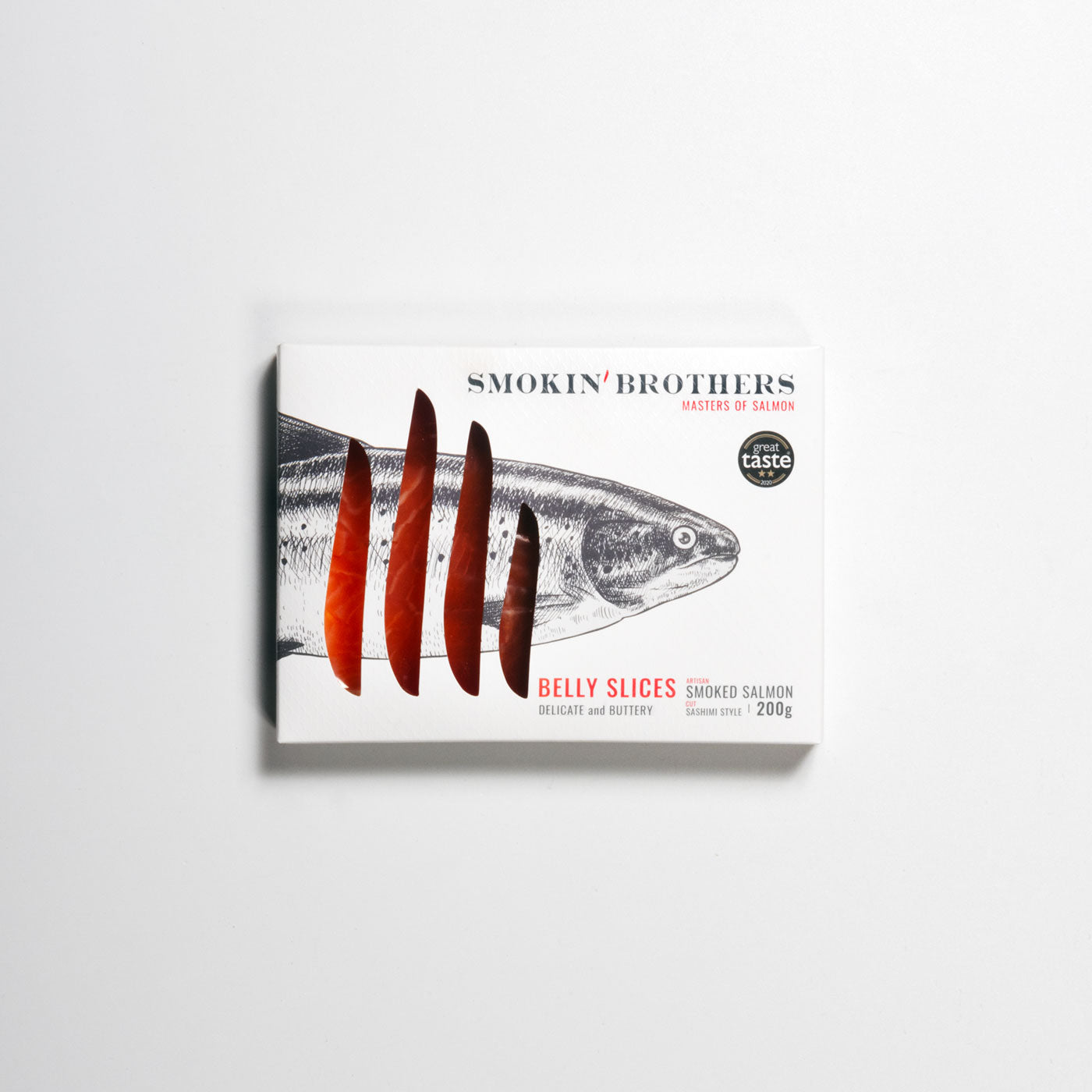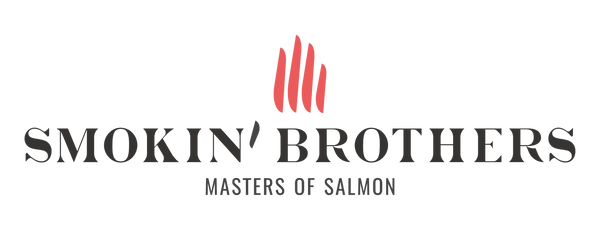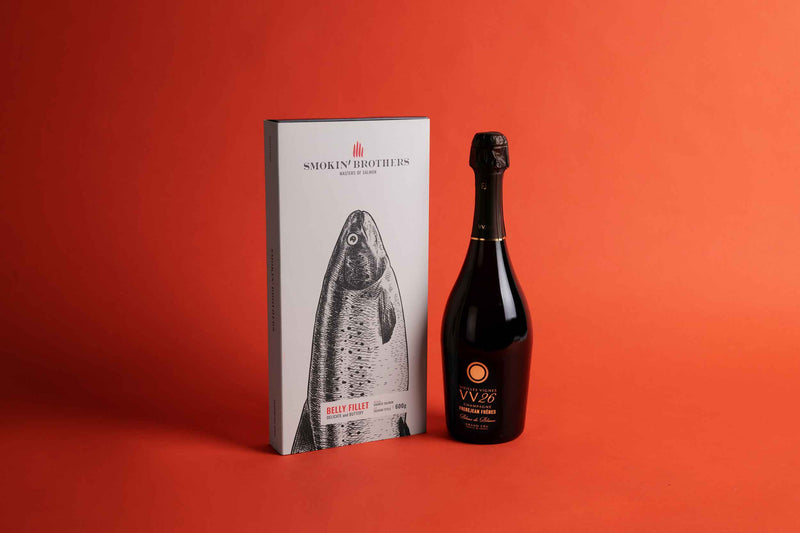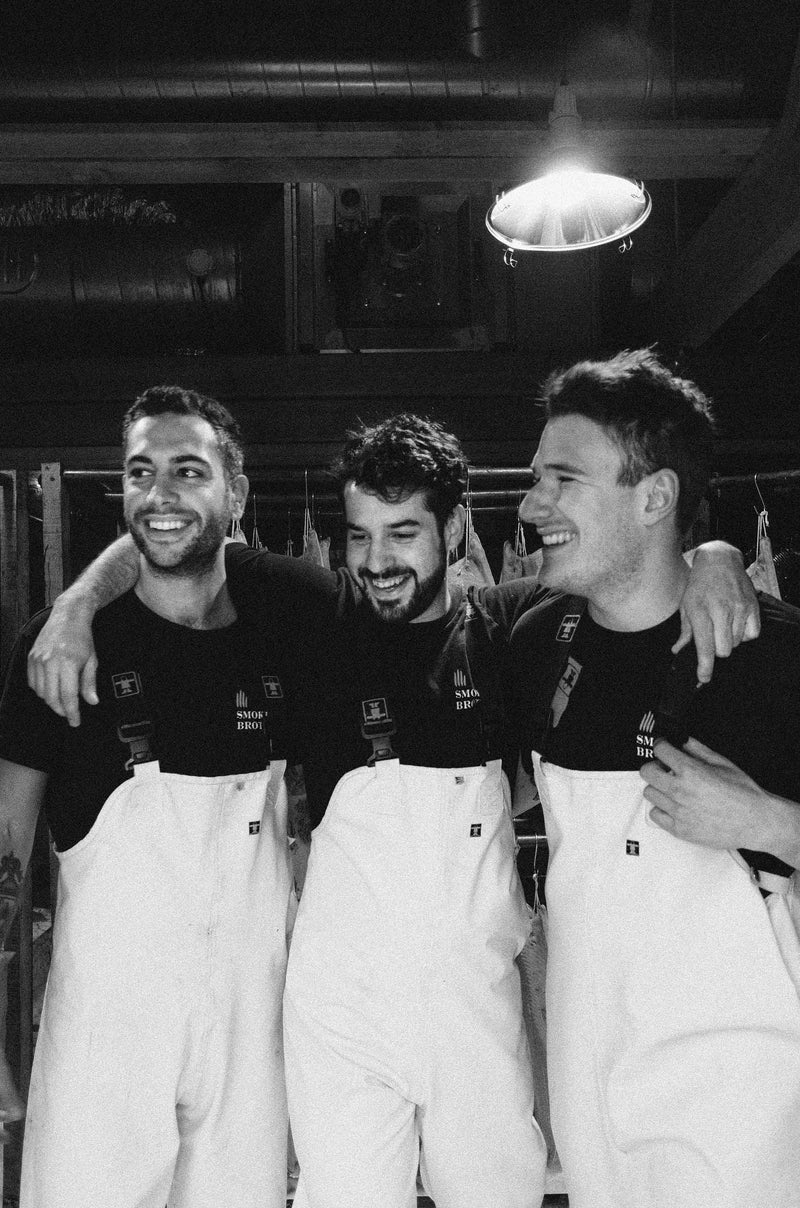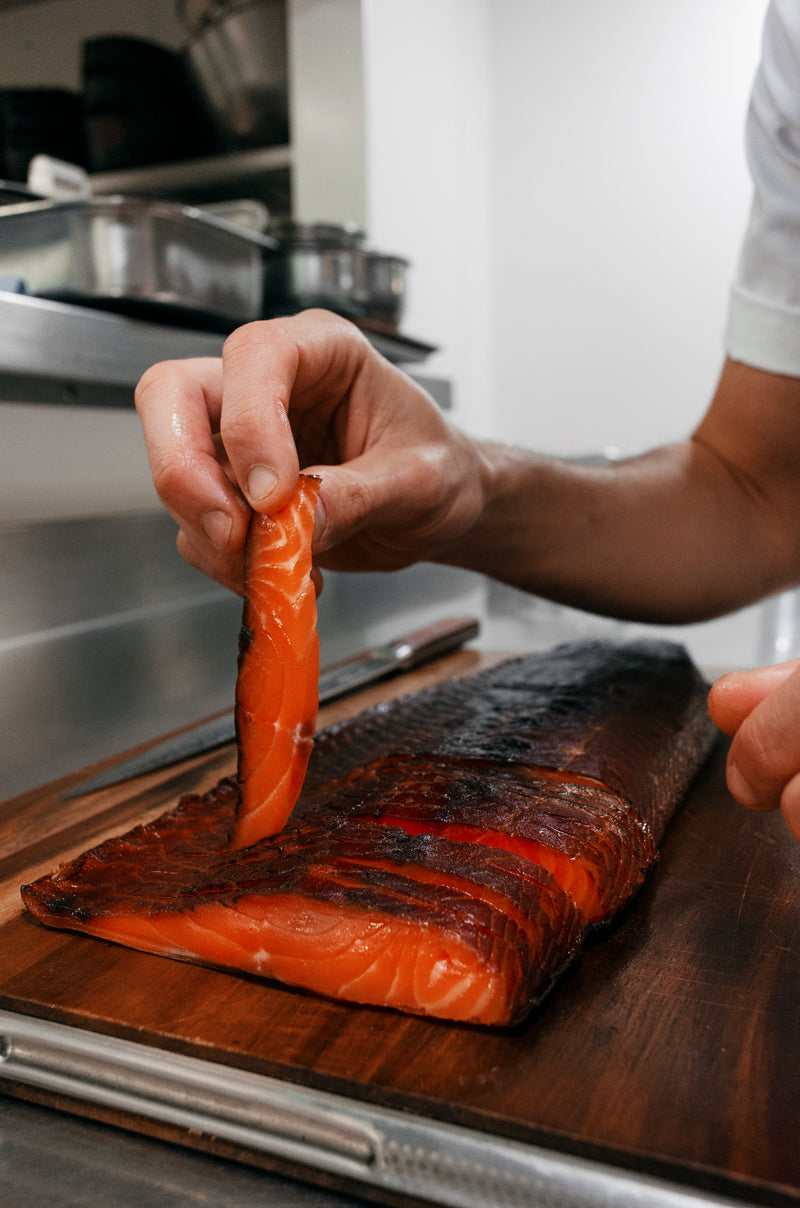True sustainability must be practised from source to shop. That’s why the Smokin’ Brothers are proud to source all of our fish from farms that practise sustainable aquaculture. This is a non-negotiable for us: we made a Promise To Our Ocean, meaning that at every stage of our process, from fishing to packaging, we put the environment first.
Wait! What is sustainable aquaculture?
Aquaculture is a broad term that covers all forms of salmon production, sustainable or otherwise. Like agriculture, it involves the controlled breeding, rearing, and harvesting of aquatic organisms. You can imagine most trout and salmon farms like large net-pens which sit in the ocean. These open-water enclosures are designed so that fish are still in their natural environment, but live in a controlled space which is separate from the wider ecosystem.
In theory, farmed fish offers a fantastic opportunity for sustainability. Farmed salmon offers an alternative to wild salmon which avoids the harmful effects of commercial fishing, such as habitat destruction, bycatch, and overfishing.
The unfortunate reality, though, is that much of the aquacultural industry still falls short of its potential.
Is aquaculture actually sustainable?
Patagonia Films’ 2019 documentary Artifishal: The Fight to Save Wild Salmon takes an in-depth look at the state of salmon welfare. As journalist and angler Mikael Frödin explains, raising salmon instead of catching them was initially “a solution to everything”, since producers could meet their yields without interfering with wild ecosystems.
However, as the film goes on to explain, there is widespread malpractice in the aquacultural industry. Unethical salmon farms will overcrowd and neglect pens, causing issues like disease, dirty water, and stock escaping. Overly intensive farming has previously led to, for example, the spread of deadly sea-lice from farms into wild populations. When practised unsustainably like this, aquaculture is not only cruel to its livestock, it also harms the surrounding ecosystem.
How are our suppliers different?
Aware of these issues in the aquacultural industry, we very carefully selected sustainable farms who share our same commitment to the environment. Our two exceptional Scottish producers, MòR Atlantic Trout and Wester Ross Salmon, are both as committed to sustainable and ethical methods as we are.
Let’s take Wester Ross as our example, the oldest independently operated salmon farm in Scotland. Their farm is RSPCA Assured, meeting high welfare standards which guarantee fish are raised in carefully managed, healthy environments with a low stock density (1% fish to 99% water). The hand-reading process they follow ensures that each fish is treated ethically, avoiding the common negligence of mechanised methods.
The Wester Ross feed is fully organic and free from antibiotics, hormones, medicines, or GMOs, allowing the salmon to grow naturally. Pests such as sea-lice are managed using natural methods, including cleaner-fish (like wrasse) rather than chemicals. This minimises harm to both the salmon and local ecosystems.
We frequently visit our fish farms, and each time we see that sustainable aquaculture is completely possible. All it takes is the dedication and moral imperative demonstrated by the incredible teams at MòR Atlantic Trout and Wester Ross.


The Future of Fishing
For the first time, aquaculture surpassed capture fishing in aquatic animal production, with 57% of fish for human consumption coming from fish farms (FAO, 2024). As we’ve covered, this is not necessarily good: the majority of these farms do not share our ethos of responsible aquaculture.
However, we hope that in promoting the example of our outstanding suppliers, we can drive forward change in the aquacultural industry. Smokin’ Brothers products are a testament to our ability to work in symbiosis with nature, and prioritise sustainability without sacrificing on quality.
Find our salmon
Shop mindfully and eat without guilt!
You can find our premium, sustainable smoked salmon and trout here.
